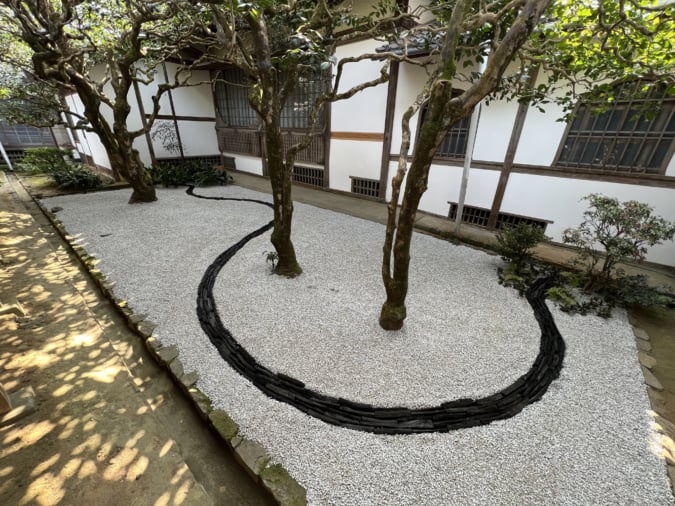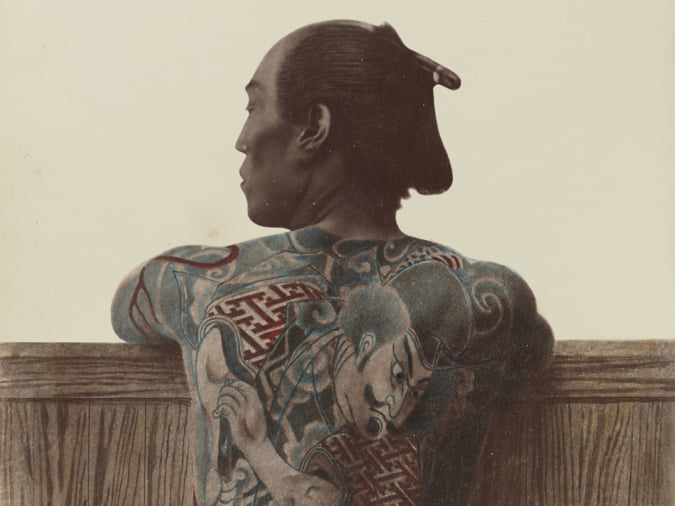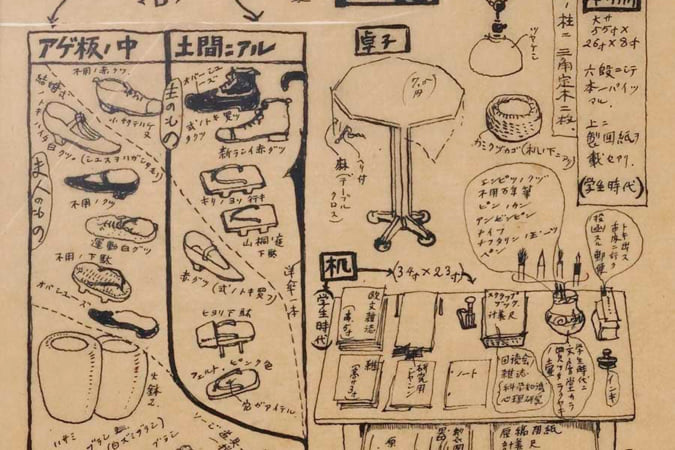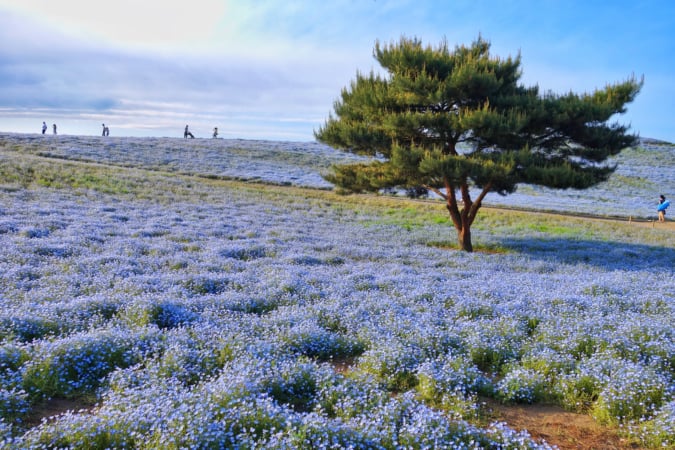A Lovely, Pale Rose Rosé with Softly Penetrating Flavor
Setsuna Uta 2016 Nobori Jozo
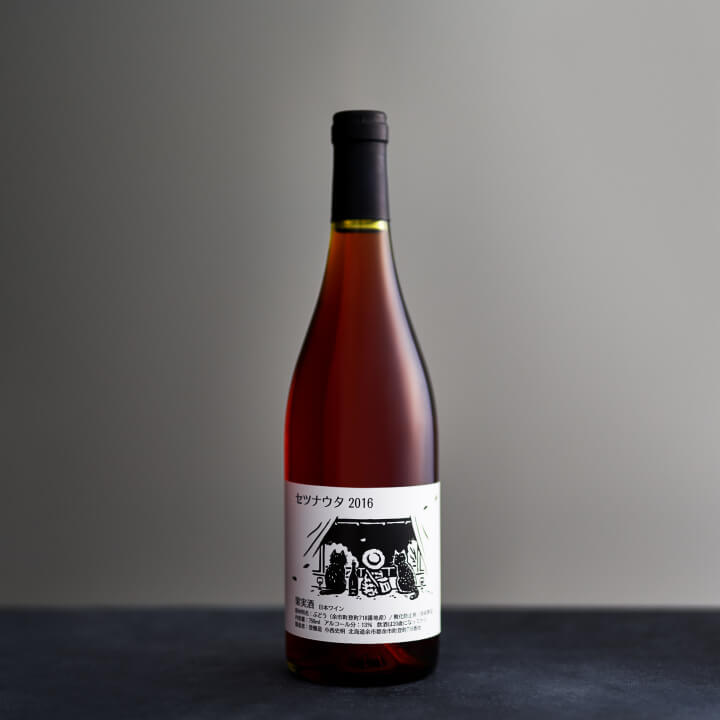
The hue is pale rose, but feels oily with surprising self-assurance. Add a raspberry-like fruitness, and a slight astringency that puckers the inner cheek, followed by a bittersweetness that reverberates comfortably—echoing again and again. The gentle, penetrating flavor has been known to trigger gasps of wonder.
The wine is called Setsuna Uta (‘Splitsecond Song’). Fumiaki Konishi, Nobori Jozo’s vintner in Yoichi-cho, Hokkaido, makes the wine from dark purple grapes called Zweigelt. Konishi, at the time a staff member of an agricultural organization, visited a wine bar in Tokyo one day where he encountered some Touraine Sauvignon, the flagship of natural wines from Thierry Puzelat in France’s Loire region. Completely taken by the taste, and determined to make such a wine himself, he moved to Hokkaido and started learning how to cultivate grapes.
He learned winemaking from the Bruce Gutlove, a veteran wine consultant in Hokkaido. Having set his heart on Tourraine Sauvignon as the standard, Konishi wanted to make a clear, pure, and mellow wine. Because most of the grapes he cultivated were of the dark purple Zweigelt variety, he crushed whole clusters quickly to prevent the color from deepening. Then, utilizing the wild yeast in the must, he waited for fermentation to start naturally.
‘At first, relying on wild yeast, namely, yeast that occurs naturally in the soil and the vines, seemed unreliable. I thought it would be better to use a strain of yeast that would produce a wine with a more predictable effect on the taste’, admits Konishi. ‘But then, as I made my own batches, I became fascinated with the complexity of wild yeast. The gentleness to the mouth was another attraction, so whatever negative aspects I encountered, I studied ways of avoiding them’. This translates into keeping the grapes healthy, handling the must carefully, and keeping the cellar spotlessly clean—sound simple? Absolutely fundamental to winemaking, they are difficult to realize in practice. Gutlove’s advice that ‘Everything matters’ made a deep impression on him. ‘Every task, every parameter will affect the taste of the wine, so whether I’m in the vineyard or the winecellar, you’ll find me muttering ‘everything matters, everything matters,’ because that’s what’s on my mind’. The result? A spirited rosé, with an unforgettable taste.
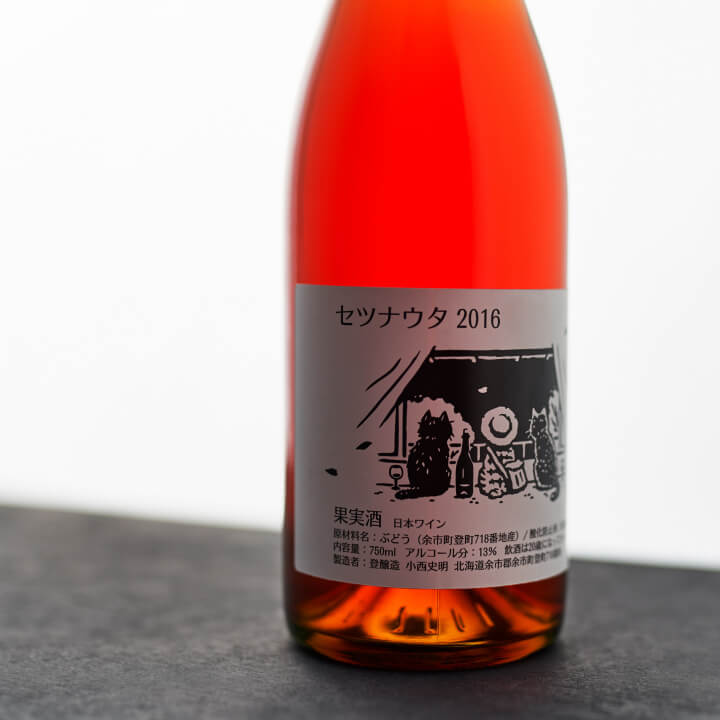
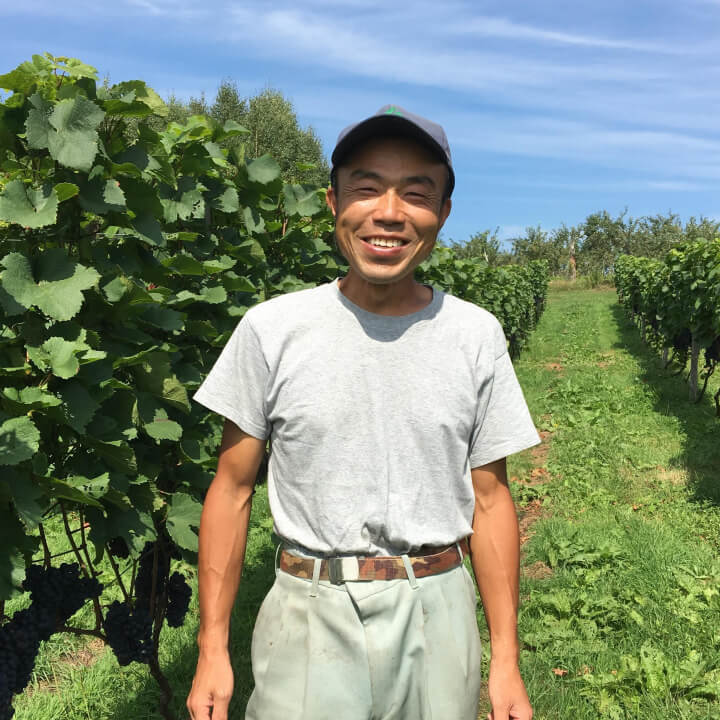
Winery name: Nobori Jozo
Area under direct cultivation: 1.9 ha
Name of fermenter: Fumiaki Konishi
Variety and origin: Zweigelt (Yoichi-cho, Yoichi-gun, Shiribeshi, Hokkaido)
Preparation: Fermented leisurely with wild yeast over 12 months. 40 ppm sulfites total.
No sugar or acid is added. Not filtered.
Volume: 750 ml
Price: ¥2,700 (including tax)
Inquiries: Nobori Jozo
www.noborijozo.comNOTE: The “Natural Wines” series introduces naturalist wines and natural wines produced as naturally as possible over all stages from grape cultivation to fermentation. What exactly does 'as naturally as possible' mean? In this series, it means 'minimal human intervention' during the secondary fermentation process. It also means 'no addition of sulfites during primary fermentation and bottling', or perhaps 'sulfites limited to an absolute minimum amount', and 'depending on natural yeast, without using cultured yeast, without additives'. Other expectations include 'No sugars are added, no adjustment with acids, no finishing agents, and generally no filtration'. In terms of grape cultivation, the basic premise is to avoid using synthetic agricultural chemicals, but growing wine varietals in the Japanese climate by organic methods is extremely problematic at present, so keeping the use of agricultural chemicals to a bare minimum is a reasonable expectation. As a general rule, herbicides and chemical fertilizers should be completely avoided. To successfully make wine in this way, grapes must be kept robust, and conscientious oversight of the fermentation process is indispensable. The vintners who succeed in raising grapes as naturally as possible in respect of the terroir, and the wines that they produce, are the deserving subjects of this series.
TRENDING
-
A Rare Japanese Garden Hidden Within Honen-in Temple in Kyoto
Visible only twice a year, ‘Empty River’, designed by landscape architect Marc Peter Keane, evokes the carbon cycle.

-
Colour Photos of Yakuza Tattoos from the Meiji Period
19th-century photographs have captured the usually hidden tattoos that covered the bodies of the members of Japanese organised crime gangs.

-
Recipe for Ichiraku Ramen from ‘Naruto’ by Danielle Baghernejad
Taken from the popular manga with the character of the same name who loves ramen, this dish is named after the hero's favourite restaurant.

-
Modernology, Kon Wajiro's Science of Everyday Observation
Makeup, beard shape, organisation of cupboards and meeting places: all of these details decipher 1920s Tokyoites.

-
Hitachi Park Offers a Colourful, Floral Breath of Air All Year Round
Only two hours from Tokyo, this park with thousands of flowers is worth visiting several times a year to appreciate all its different types.

